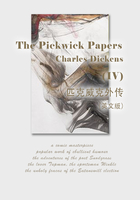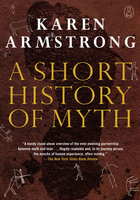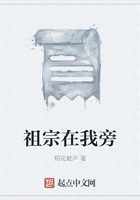Which is all about the Law, and sundry Great Authorities learned therein
Scattered about, in various holes and corners of the Temple, are certain dark and dirty chambers, in and out of which, all the morning in vacation, and half the evening too in term time, there may be seen constantly hurrying with bundles of papers under their arms, and protruding from their pockets, an almost uninterrupted succession of lawyers' clerks. There are several grades of lawyers' clerks. There is the articled clerk, who has paid a premium, and is an attorney in perspective, who runs a tailor's bill, receives invitations to parties, knows a family in Gower Street, and another in Tavistock Square; who goes out of town every long vacation to see his father, who keeps live horses innumerable; and who is, in short, the very aristocrat of clerks. There is the salaried clerk-out of door, or in door, as the case may be-who devotes the major part of his thirty shillings a week to his Personal pleasure and adornments, repairs half-price to the Adelphi Theatre at least three times a week, dissipates majestically at the cider cellars afterwards, and is a dirty caricature of the fashion which expired six months ago. There is the middle-aged copying clerk, with a large family, who is always shabby, and often drunk. And there are the office lads in their first surtouts, who feel a befitting contempt for boys at day-schools, club as they go home at night, for saveloys and porter, and think there's nothing like 'life.' There are varieties of the genus, too numerous to recapitulate, but however numerous they may be, they are all to be seen, at certain regulated business hours, hurrying to and from the places we have just mentioned.
These sequestered nooks are the public offices of the legal profession, where writs are issued, judgments signed, declarations filed, and numerous other ingenious machines put in motion for the torture and torment of His Majesty's liege subjects, and the comfort and emolument of the practitioners of the law. They are, for the most part, low-roofed, mouldy rooms, where innumerable rolls of parchment, which have been perspiring in secret for the last century, send forth an agreeable odour, which is mingled by day with the scent of the dry-rot, and by night with the various exhalations which arise from damp cloaks, festering umbrellas, and the coarsest tallow candles.
About half-past seven o'clock in the evening, some ten days or a fortnight after Mr. Pickwick and his friends returned to London, there hurried into one of these offices, an individual in a brown coat and brass buttons, whose long hair was scrupulously twisted round the rim of his napless hat, and whose soiled drab trousers were so tightly strapped over his Blucher boots, that his knees threatened every moment to start from their concealment. He produced from his coat pockets a long and narrow strip of parchment, on which the presiding functionary impressed an illegible black stamp. He then drew forth four scraps of paper, of similar dimensions, each containing a printed copy of the strip of parchment with blanks for a name; and having filled up the blanks, put all the five documents in his pocket, and hurried away.
The man in the brown coat, with the cabalistic documents in his pocket, was no other than our old acquaintance Mr. Jackson, of the house of Dodson & Fogg, Freeman's Court, Cornhill. Instead of returning to the office whence he came, however, he bent his steps direct to Sun Court, and walking straight into the George and Vulture, demanded to know whether one Mr. Pickwick was within.
'Call Mr. Pickwick's servant, Tom,' said the barmaid of the George and Vulture.
'Don't trouble yourself,' said Mr. Jackson. 'I've come on business. If you'll show me Mr. Pickwick's room I'll step up myself.'
'What name, Sir?' said the waiter.
'Jackson,' replied the clerk.
The waiter stepped upstairs to announce Mr. Jackson; but Mr. Jackson saved him the trouble by following close at his heels, and walking into the apartment before he could articulate a syllable.
Mr. Pickwick had, that day, invited his three friends to dinner; they were all seated round the fire, drinking their wine, when Mr. Jackson presented himself, as above described.
'How de do, sir?' said Mr. Jackson, nodding to Mr. Pickwick.
That gentleman bowed, and looked somewhat surprised, for the physiognomy of Mr. Jackson dwelt not in his recollection.
'I have called from Dodson and Fogg's,' said Mr. Jackson, in an explanatory tone.
Mr. Pickwick roused at the name. 'I refer you to my attorney, Sir; Mr. Perker, of Gray's Inn,' said he. 'Waiter, show this gentleman out.'
'Beg your pardon, Mr. Pickwick,' said Jackson, deliberately depositing his hat on the floor, and drawing from his pocket the strip of parchment. 'But personal service, by clerk or agent, in these cases, you know, Mr. Pickwick-nothing like caution, sir, in all legal forms-eh?'
Here Mr. Jackson cast his eye on the parchment; and, resting his hands on the table, and looking round with a winning and persuasive smile, said, 'Now, come; don't let's have no words about such a little matter as this. Which of you gentlemen's name's Snodgrass?'
At this inquiry, Mr. Snodgrass gave such a very undisguised and palpable start, that no further reply was needed.
'Ah! I thought so,' said Mr. Jackson, more affably than before. 'I've a little something to trouble you with, Sir.'
'Me!'exclaimed Mr. Snodgrass.
'It's only a subpoena in Bardell and Pickwick on behalf of the plaintiff,' replied Jackson, singling out one of the slips of paper, and producing a shilling from his waistcoat pocket. 'It'll come on, in the settens after Term: fourteenth of Febooary, we expect; we've marked it a special jury cause, and it's only ten down the paper. That's yours, Mr. Snodgrass.' As Jackson said this, he presented the parchment before the eyes of Mr. Snodgrass, and slipped the paper and the shilling into his hand.
Mr. Tupman had witnessed this process in silent astonishment, when Jackson, turning sharply upon him, said-
'I think I ain't mistaken when I say your name's Tupman, am I?'
Mr. Tupman looked at Mr. Pickwick; but, perceiving no encouragement in that gentleman's widely-opened eyes to deny his name, said-
'Yes, my name is Tupman, Sir.'
'And that other gentleman's Mr. Winkle, I think?' said Jackson. Mr. Winkle faltered out a reply in the affirmative; and both gentlemen were forthwith invested with a slip of paper, and a shilling each, by the dexterous Mr. Jackson.
'Now,' said Jackson, 'I'm afraid you'll think me rather troublesome, but I want somebody else, if it ain't inconvenient. I have Samuel Weller's name here, Mr. Pickwick.'
'Send my servant here, waiter,' said Mr. Pickwick. The waiter retired, considerably astonished, and Mr. Pickwick motioned Jackson to a seat.
There was a painful pause, which was at length broken by the innocent defendant. 'I suppose, Sir,' said Mr. Pickwick, his indignation rising while he spoke-'I suppose, Sir, that it is the intention of your employers to seek to criminate me upon the testimony of my own friends?'
Mr. Jackson struck his forefinger several times against the left side of his nose, to intimate that he was not there to disclose the secrets of the prison house, and playfully rejoined-
'Not knowin', can't say.'
'For what other reason, Sir,' pursued Mr. Pickwick, 'are these subpoenas served upon them, if not for this?'
'Very good plant, Mr. Pickwick,' replied Jackson, slowly shaking his head. 'But it won't do. No harm in trying, but there's little to be got out of me.'
Here Mr. Jackson smiled once more upon the company, and, applying his left thumb to the tip of his nose, worked a visionary coffee-mill with his right hand, thereby performing a very graceful piece of pantomime (then much in vogue, but now, unhappily, almost obsolete) which was familiarly denominated 'taking a grinder.'
'No, no, Mr. Pickwick,' said Jackson, in conclusion; 'Perker's people must guess what we've served these subpoenas for. If they can't, they must wait till the action comes on, and then they'll find out.' Mr. Pickwick bestowed a look of excessive disgust on his unwelcome visitor, and would probably have hurled some tremendous anathema at the heads of Messrs. Dodson & Fogg, had not Sam's entrance at the instant interrupted him.
'Samuel Weller?' said Mr. Jackson, inquiringly.
'Vun o' the truest things as you've said for many a long year,' replied Sam, in a most composed manner.
'Here's a subpoena for you, Mr. Weller,' said Jackson.
'What's that in English?' inquired Sam.
'Here's the original,' said Jackson, declining the required explanation.
'Which?' said Sam.
'This,' replied Jackson, shaking the parchment.
'Oh, that's the 'rig'nal, is it?' said Sam. 'Well, I'm wery glad I've seen the 'rig'nal, 'cos it's a gratifyin' sort o' thing, and eases vun's mind so much.'
'And here's the shilling,' said Jackson. 'It's from Dodson and Fogg's.'
'And it's uncommon handsome o' Dodson and Fogg, as knows so little of me, to come down vith a present,' said Sam. 'I feel it as a wery high compliment, sir; it's a wery honorable thing to them, as they knows how to reward merit werever they meets it. Besides which, it's affectin' to one's feelin's.'
As Mr. Weller said this, he inflicted a little friction on his right eyelid, with the sleeve of his coat, after the most approved manner of actors when they are in domestic pathetics.
Mr. Jackson seemed rather puzzled by Sam's proceedings; but, as he had served the subpoenas, and had nothing more to say, he made a feint of putting on the one glove which he usually carried in his hand, for the sake of appearances; and returned to the office to report progress.
Mr. Pickwick slept little that night; his memory had received a very disagreeable refresher on the subject of Mrs. Bardell's action. He breakfasted betimes next morning, and, desiring Sam to accompany him, set forth towards Gray's Inn Square.
'Sam!' said Mr. Pickwick, looking round, when they got to the end of Cheapside.
'Sir?' said Sam, stepping up to his master.
'Which way?' 'Up Newgate Street.'
Mr. Pickwick did not turn round immediately, but looked vacantly in Sam's face for a few seconds, and heaved a deep sigh.
'What's the matter, sir?' inquired Sam.
'This action, Sam,' said Mr. Pickwick, 'is expected to come on, on the fourteenth of next month.' 'Remarkable coincidence that 'ere, sir,' replied Sam.
'Why remarkable, Sam?' inquired Mr. Pickwick.
'Walentine's day, sir,' responded Sam; 'reg'lar good day for a breach o' promise trial.'
Mr. Weller's smile awakened no gleam of mirth in his master's countenance. Mr. Pickwick turned abruptly round, and led the way in silence.
They had walked some distance, Mr. Pickwick trotting on before, plunged in profound meditation, and Sam following behind, with a countenance expressive of the most enviable and easy defiance of everything and everybody, when the latter, who was always especially anxious to impart to his master any exclusive information he possessed, quickened his pace until he was close at Mr. Pickwick's heels; and, pointing up at a house they were passing, said-
'Wery nice pork-shop that 'ere, sir.'
'Yes, it seems so,' said Mr. Pickwick.
'Celebrated sassage factory,' said Sam.
'Is it?' said Mr. Pickwick.
'Is it!' reiterated Sam, with some indignation; 'I should rayther think it was. Why, sir, bless your innocent eyebrows, that's where the mysterious disappearance of a 'spectable tradesman took place four years ago.'
'You don't mean to say he was burked, Sam?' said Mr. Pickwick, looking hastily round.
'No, I don't indeed, sir,' replied Mr. Weller, 'I wish I did; far worse than that. He was the master o' that 'ere shop, sir, and the inwentor o' the patent-never-leavin'-off sassage steam-ingin, as 'ud swaller up a pavin' stone if you put it too near, and grind it into sassages as easy as if it was a tender young babby. Wery proud o' that machine he was, as it was nat'ral he should be, and he'd stand down in the celler a-lookin' at it wen it was in full play, till he got quite melancholy with joy. A wery happy man he'd ha' been, Sir, in the procession o' that 'ere ingin and two more lovely hinfants besides, if it hadn't been for his wife, who was a most owdacious wixin. She was always a-follerin' him about, and dinnin' in his ears, till at last he couldn't stand it no longer. "I'll tell you what it is, my dear," he says one day; "if you persewere in this here sort of amusement," he says, "I'm blessed if I don't go away to 'Merriker; and that's all about it." "You're a idle willin," says she, "and I wish the 'Merrikins joy of their bargain." Arter which she keeps on abusin' of him for half an hour, and then runs into the little parlour behind the shop, sets to a-screamin', says he'll be the death on her, and falls in a fit, which lasts for three good hours-one o' them fits wich is all screamin' and kickin'. Well, next mornin', the husband was missin'. He hadn't taken nothin' from the till-hadn't even put on his greatcoat-so it was quite clear he warn't gone to 'Merriker. Didn't come back next day; didn't come back next week; missis had bills printed, sayin' that, if he'd come back, he should be forgiven everythin' (which was very liberal, seein' that he hadn't done nothin' at all); the canals was dragged, and for two months arterwards, wenever a body turned up, it was carried, as a reg'lar thing, straight off to the sassage shop. Hows'ever, none on 'em answered; so they gave out that he'd run away, and she kep' on the bis'ness. One Saturday night, a little, thin, old gen'l'm'n comes into the shop in a great passion and says, "Are you the missis o' this here shop?" "Yes, I am," says she. "Well, ma'am," says he, "then I've just looked in to say that me and my family ain't a-goin' to be choked for nothin'; and more than that, ma'am," he says, "you'll allow me to observe that as you don't use the primest parts of the meat in the manafacter o' sassages, I'd think you'd find beef come nearly as cheap as buttons." "As buttons, Sir!" says she. "Buttons, ma'am," says the little, old gentleman, unfolding a bit of paper, and showin' twenty or thirty halves o' buttons. "Nice seasonin' for sassages, is trousers' buttons, ma'am." "They're my husband's buttons!" says the widder beginnin' to faint, "What!" screams the little old gen'l'm'n, turnin' wery pale. "I see it all," says the widder; "in a fit of temporary insanity he rashly converted hisself into sassages!" And so he had, Sir,' said Mr. Weller, looking steadily into Mr. Pickwick's horror-stricken countenance, 'or else he'd been draw'd into the ingin; but however that might ha' been, the little, old gen'l'm'n, who had been remarkably partial to sassages all his life, rushed out o' the shop in a wild state, and was never heerd on arterwards!'
The relation of this affecting incident of private life brought master and man to Mr. Perker's chambers. Lowten, holding the door half open, was in conversation with a rustily-clad, miserable-looking man, in boots without toes and gloves without fingers. There were traces of privation and suffering-almost of despair-in his lank and care-worn countenance; he felt his poverty, for he shrank to the dark side of the staircase as Mr. Pickwick approached.
'It's very unfortunate,' said the stranger, with a sigh.
'Very,' said Lowten, scribbling his name on the doorpost with his pen, and rubbing it out again with the feather. 'Will you leave a message for him?'
'When do you think he'll be back?' inquired the stranger.
'Quite uncertain,' replied Lowten, winking at Mr. Pickwick, as the stranger cast his eyes towards the ground.
'You don't think it would be of any use my waiting for him?' said the stranger, looking wistfully into the office.
'Oh, no, I'm sure it wouldn't,' replied the clerk, moving a little more into the centre of the doorway. 'He's certain not to be back this week, and it's a chance whether he will be next; for when Perker once gets out of town, he's never in a hurry to come back again.'
'Out of town!' said Mr. Pickwick; 'dear me, how unfortunate!'
'Don't go away, Mr. Pickwick,' said Lowten, 'I've got a letter for you.' The stranger, seeming to hesitate, once more looked towards the ground, and the clerk winked slyly at Mr. Pickwick, as if to intimate that some exquisite piece of humour was going forward, though what it was Mr. Pickwick could not for the life of him divine. 'Step in, Mr. Pickwick,' said Lowten. 'Well, will you leave a message, Mr. Watty, or will you call again?'
'Ask him to be so kind as to leave out word what has been done in my business,' said the man; 'for God's sake don't neglect it, Mr. Lowten.'
'No, no; I won't forget it,' replied the clerk. 'Walk in, Mr. Pickwick. Good-morning, Mr. Watty; it's a fine day for walking, isn't it?' Seeing that the stranger still lingered, he beckoned Sam Weller to follow his master in, and shut the door in his face.
'There never was such a pestering bankrupt as that since the world began, I do believe!' said Lowten, throwing down his pen with the air of an injured man. 'His affairs haven't been in Chancery quite four years yet, and I'm d-d if he don't come worrying here twice a week. Step this way, Mr. Pickwick. Perker is in, and he'll see you, I know. Devilish cold,' he added pettishly, 'standing at that door, wasting one's time with such seedy vagabonds!' Having very vehemently stirred a particularly large fire with a particularly small poker, the clerk led the way to his principal's private room, and announced Mr. Pickwick.
'Ah, my dear Sir,' said little Mr. Perker, bustling up from his chair. 'Well, my dear sir, and what's the news about your matter, eh? Anything more about our friends in Freeman's Court? They've not been sleeping, I know that. Ah, they're very smart fellows; very smart, indeed.'
As the little man concluded, he took an emphatic pinch of snuff, as a tribute to the smartness of Messrs. Dodson and Fogg.
'They are great scoundrels,' said Mr. Pickwick.
'Aye, aye,' said the little man; 'that's a matter of opinion, you know, and we won't dispute about terms; because of course you can't be expected to view these subjects with a professional eye. Well, we've done everything that's necessary. I have retained Serjeant Snubbin.'
'Is he a good man?' inquired Mr. Pickwick.
'Good man!' replied Perker; 'bless your heart and soul, my dear Sir, Serjeant Snubbin is at the very top of his profession. Gets treble the business of any man in court-engaged in every case. You needn't mention it abroad; but we say-we of the profession-that Serjeant Snubbin leads the court by the nose.'
The little man took another pinch of snuff as he made this communication, and nodded mysteriously to Mr. Pickwick.
'They have subpoenaed my three friends,' said Mr. Pickwick.
'Ah! of course they would,' replied Perker. 'Important witnesses; saw you in a delicate situation.'
'But she fainted of her own accord,' said Mr. Pickwick. 'She threw herself into my arms.'
'Very likely, my dear Sir,' replied Perker; 'very likely and very natural. Nothing more so, my dear Sir, nothing. But who's to prove it?'
'They have subpoenaed my servant, too,' said Mr. Pickwick, quitting the other point; for there Mr. Perker's question had somewhat staggered him.
'Sam?' said Perker.
Mr. Pickwick replied in the affirmative.
'Of course, my dear Sir; of course. I knew they would. I could have told you that, a month ago. You know, my dear Sir, if you will take the management of your affairs into your own hands after entrusting them to your solicitor, you must also take the consequences.' Here Mr. Perker drew himself up with conscious dignity, and brushed some stray grains of snuff from his shirt frill.
'And what do they want him to prove?' asked Mr. Pickwick, after two or three minutes' silence.
'That you sent him up to the plaintiff 's to make some offer of a compromise, I suppose,' replied Perker. 'It don't matter much, though; I don't think many counsel could get a great deal out of him.'
'I don't think they could,' said Mr. Pickwick, smiling, despite his vexation, at the idea of Sam's appearance as a witness. 'What course do we pursue?'
'We have only one to adopt, my dear Sir,' replied Perker; 'cross-examine the witnesses; trust to Snubbin's eloquence; throw dust in the eyes of the judge; throw ourselves on the jury.'
'And suppose the verdict is against me?' said Mr. Pickwick.
Mr. Perker smiled, took a very long pinch of snuff, stirred the fire, shrugged his shoulders, and remained expressively silent.
'You mean that in that case I must pay the damages?' said Mr. Pickwick, who had watched this telegraphic answer with considerable sternness.
Perker gave the fire another very unnecessary poke, and said, 'I am afraid so.'
'Then I beg to announce to you my unalterable determination to pay no damages whatever,' said Mr. Pickwick, most emphatically. 'None, Perker. Not a pound, not a penny of my money, shall find its way into the pockets of Dodson and Fogg. That is my deliberate and irrevocable determination.' Mr. Pickwick gave a heavy blow on the table before him, in confirmation of the irrevocability of his intention.
'Very well, my dear Sir, very well,' said Perker. 'You know best, of course.'
'Of course,' replied Mr. Pickwick hastily. 'Where does Serjeant Snubbin live?' 'In Lincoln's Inn Old Square,' replied Perker.
'I should like to see him,' said Mr. Pickwick.
'See Serjeant Snubbin, my dear Sir!' rejoined Perker, in utter amazement. 'Pooh, pooh, my dear Sir, impossible. See Serjeant Snubbin! Bless you, my dear Sir, such a thing was never heard of, without a consultation fee being previously paid, and a consultation fixed. It couldn't be done, my dear Sir; it couldn't be done.'
Mr. Pickwick, however, had made up his mind not only that it could be done, but that it should be done; and the consequence was, that within ten minutes after he had received the assurance that the thing was impossible, he was conducted by his solicitor into the outer office of the great Serjeant Snubbin himself.
It was an uncarpeted room of tolerable dimensions, with a large writing-table drawn up near the fire, the baize top of which had long since lost all claim to its original hue of green, and had gradually grown gray with dust and age, except where all traces of its natural colour were obliterated by ink-stains. Upon the table were numerous little bundles of papers tied with red tape; and behind it, sat an elderly clerk, whose sleek appearance and heavy gold watch-chain presented imposing indications of the extensive and lucrative practice of Mr. Serjeant Snubbin.
'Is the Serjeant in his room, Mr. Mallard?' inquired Perker, offering his box with all imaginable courtesy.
'Yes, he is,' was the reply, 'but he's very busy. Look here; not an opinion given yet, on any one of these cases; and an expedition fee paid with all of 'em.' The clerk smiled as he said this, and inhaled the pinch of snuff with a zest which seemed to be compounded of a fondness for snuff and a relish for fees.
'Something like practice that,' said Perker.
'Yes,' said the barrister's clerk, producing his own box, and offering it with the greatest cordiality; 'and the best of it is, that as nobody alive except myself can read the serjeant's writing, they are obliged to wait for the opinions, when he has given them, till I have copied 'em, ha-ha-ha!'
'Which makes good for we know who, besides the serjeant, and draws a little more out of the clients, eh?' said Perker; 'ha, ha, ha!' At this the serjeant's clerk laughed again-not a noisy boisterous laugh, but a silent, internal chuckle, which Mr. Pickwick disliked to hear. When a man bleeds inwardly, it is a dangerous thing for himself; but when he laughs inwardly, it bodes no good to other people.
'You haven't made me out that little list of the fees that I'm in your debt, have you?' said Perker.
'No, I have not,' replied the clerk.
'I wish you would,' said Perker. 'Let me have them, and I'll send you a cheque. But I suppose you're too busy pocketing the ready money, to think of the debtors, eh? ha, ha, ha!' This sally seemed to tickle the clerk amazingly, and he once more enjoyed a little quiet laugh to himself.
'But, Mr. Mallard, my dear friend,' said Perker, suddenly recovering his gravity, and drawing the great man's great man into a Corner, by the lappel of his coat; 'you must persuade the Serjeant to see me, and my client here.'
'Come, come,' said the clerk, 'that's not bad either. See the Serjeant! come, that's too absurd.' Notwithstanding the absurdity of the proposal, however, the clerk allowed himself to be gently drawn beyond the hearing of Mr. Pickwick; and after a short conversation conducted in whispers, walked softly down a little dark passage, and disappeared into the legal luminary's sanctum, whence he shortly returned on tiptoe, and informed Mr. Perker and Mr. Pickwick that the Serjeant had been prevailed upon, in violation of all established rules and customs, to admit them at once.
Mr. Serjeant Snubbins was a lantern-faced, sallow-complexioned man, of about five-and-forty, or-as the novels say-he might be fifty. He had that dull-looking, boiled eye which is often to be seen in the heads of people who have applied themselves during many years to a weary and laborious course of study; and which would have been sufficient, without the additional eyeglass which dangled from a broad black riband round his neck, to warn a stranger that he was very near-sighted. His hair was thin and weak, which was partly attributable to his having never devoted much time to its arrangement, and partly to his having worn for five-and-twenty years the forensic wig which hung on a block beside him. The marks of hairpowder on his coat-collar, and the ill-washed and worse tied white neckerchief round his throat, showed that he had not found leisure since he left the court to make any alteration in his dress; while the slovenly style of the remainder of his costume warranted the inference that his personal appearance would not have been very much improved if he had. Books of practice, heaps of papers, and opened letters, were scattered over the table, without any attempt at order or arrangement; the furniture of the room was old and rickety; the doors of the book-case were rotting in their hinges; the dust flew out from the carpet in little clouds at every step; the blinds were yellow with age and dirt; the state of everything in the room showed, with a clearness not to be mistaken, that Mr. Serjeant Snubbin was far too much occupied with his professional pursuits to take any great heed or regard of his personal comforts.
The Serjeant was writing when his clients entered; he bowed abstractedly when Mr. Pickwick was introduced by his solicitor; and then, motioning them to a seat, put his pen carefully in the inkstand, nursed his left leg, and waited to be spoken to.
'Mr. Pickwick is the defendant in Bardell and Pickwick, Serjeant Snubbin,' said Perker.
'I am retained in that, am I?' said the Serjeant.
'You are, Sir,' replied Perker.
The Serjeant nodded his head, and waited for something else.
'Mr. Pickwick was anxious to call upon you, Serjeant Snubbin,' said Perker, 'to state to you, before you entered upon the case, that he denies there being any ground or pretence whatever for the action against him; and that unless he came into court with clean hands, and without the most conscientious conviction that he was right in resisting the plaintiff's demand, he would not be there at all. I believe I state your views correctly; do I not, my dear Sir?' said the little man, turning to Mr. Pickwick.
'Quite so,' replied that gentleman.
Mr. Serjeant Snubbin unfolded his glasses, raised them to his eyes; and, after looking at Mr. Pickwick for a few seconds with great curiosity, turned to Mr. Perker, and said, smiling slightly as he spoke-'Has Mr. Pickwick a strong case?'
The attorney shrugged his shoulders.
'Do you propose calling witnesses?'
'No.'
The smile on the Serjeant's countenance became more defined; he rocked his leg with increased violence; and, throwing himself back in his easy-chair, coughed dubiously.
These tokens of the Serjeant's presentiments on the subject, slight as they were, were not lost on Mr. Pickwick. He settled the spectacles, through which he had attentively regarded such demonstrations of the barrister's feelings as he had permitted himself to exhibit, more firmly on his nose; and said with great energy, and in utter disregard of all Mr. Perker's admonitory winkings and frownings-
'My wishing to wait upon you, for such a purpose as this, Sir, appears, I have no doubt, to a gentleman who sees so much of these matters as you must necessarily do, a very extraordinary circumstance.'
The Serjeant tried to look gravely at the fire, but the smile came back again.
'Gentlemen of your profession, Sir,' continued Mr. Pickwick, 'see the worst side of human nature. All its disputes, all its ill-will and bad blood, rise up before you. You know from your experience of juries (I mean no disparagement to you, or them) how much depends upon effect; and you are apt to attribute to others, a desire to use, for purposes of deception and Self-interest, the very instruments which you, in pure honesty and honour of purpose, and with a laudable desire to do your utmost for your client, know the temper and worth of so well, from constantly employing them yourselves. I really believe that to this circumstance may be attributed the vulgar but very general notion of your being, as a body, suspicious, distrustful, and over-cautious. Conscious as I am, sir, of the disadvantage of making such a declaration to you, under such circumstances, I have come here, because I wish you distinctly to understand, as my friend Mr. Perker has said, that I am innocent of the falsehood laid to my charge; and although I am very well aware of the inestimable value of your assistance, Sir, I must beg to add, that unless you sincerely believe this, I would rather be deprived of the aid of your talents than have the advantage of them.'
Long before the close of this address, which we are bound to say was of a very prosy character for Mr. Pickwick, the Serjeant had relapsed into a state of abstraction. After some minutes, however, during which he had reassumed his pen, he appeared to be again aware of the presence of his clients; raising his head from the paper, he said, rather snappishly-
'Who is with me in this case?'
'Mr. Phunky, Serjeant Snubbin,' replied the attorney.
'Phunky-Phunky,' said the Serjeant, 'I never heard the name before. He must be a very young man.'
'Yes, he is a very young man,' replied the attorney. 'He was only called the other day. Let me see-he has not been at the Bar eight years yet.'
'Ah, I thought not,' said the Serjeant, in that sort of pitying tone in which ordinary folks would speak of a very helpless little child. 'Mr. Mallard, send round to Mr.-Mr.-' 'Phunky's-Holborn Court, Gray's Inn,' interposed Perker. (Holborn Court, by the bye, is South Square now.) 'Mr. Phunky, and say I should be glad if he'd step here, a moment.'
Mr. Mallard departed to execute his commission; and Serjeant Snubbin relapsed into abstraction until Mr. Phunky himself was introduced.
Although an infant barrister, he was a full-grown man. He had a very nervous manner, and a painful hesitation in his speech; it did not appear to be a natural defect, but seemed rather the result of timidity, arising from the consciousness of being 'kept down' by want of means, or interest, or connection, or impudence, as the case might be. He was overawed by the Serjeant, and profoundly courteous to the attorney.
'I have not had the pleasure of seeing you before, Mr. Phunky,' said Serjeant Snubbin, with haughty condescension.
Mr. Phunky bowed. He had had the pleasure of seeing the Serjeant, and of envying him too, with all a poor man's envy, for eight years and a quarter.
'You are with me in this case, I understand?' said the Serjeant.
If Mr. Phunky had been a rich man, he would have instantly sent for his clerk to remind him; if he had been a wise one, he would have applied his forefinger to his forehead, and endeavoured to recollect, whether, in the multiplicity of his engagements, he had undertaken this one or not; but as he was neither rich nor wise (in this sense, at all events) he turned red, and bowed.
'Have you read the papers, Mr. Phunky?' inquired the Serjeant.
Here again, Mr. Phunky should have professed to have forgotten all about the merits of the case; but as he had read such papers as had been laid before him in the course of the action, and had thought of nothing else, waking or sleeping, throughout the two months during which he had been retained as Mr. Serjeant Snubbin's junior, he turned a deeper red and bowed again.
'This is Mr. Pickwick,' said the Serjeant, waving his pen in the direction in which that gentleman was standing.
Mr. Phunky bowed to Mr. Pickwick, with a reverence which a first client must ever awaken; and again inclined his head towards his leader.
'Perhaps you will take Mr. Pickwick away,' said the Serjeant, 'and-and-and-hear anything Mr. Pickwick may wish to communicate. We shall have a consultation, of course.' With that hint that he had been interrupted quite long enough, Mr. Serjeant Snubbin, who had been gradually growing more and more abstracted, applied his glass to his eyes for an instant, bowed slightly round, and was once more deeply immersed in the case before him, which arose out of an interminable lawsuit, originating in the act of an individual, deceased a century or so ago, who had stopped up a pathway leading from some place which nobody ever came from, to some other place which nobody ever went to.
Mr. Phunky would not hear of passing through any door until Mr. Pickwick and his solicitor had passed through before him, so it was some time before they got into the Square; and when they did reach it, they walked up and down, and held a long conference, the result of which was, that it was a very difficult matter to say how the verdict would go; that nobody could presume to calculate on the issue of an action; that it was very lucky they had prevented the other party from getting Serjeant Snubbin; and other topics of doubt and consolation, common in such a position of affairs.
Mr. Weller was then roused by his master from a sweet sleep of an hour's duration; and, bidding adieu to Lowten, they returned to the city.















